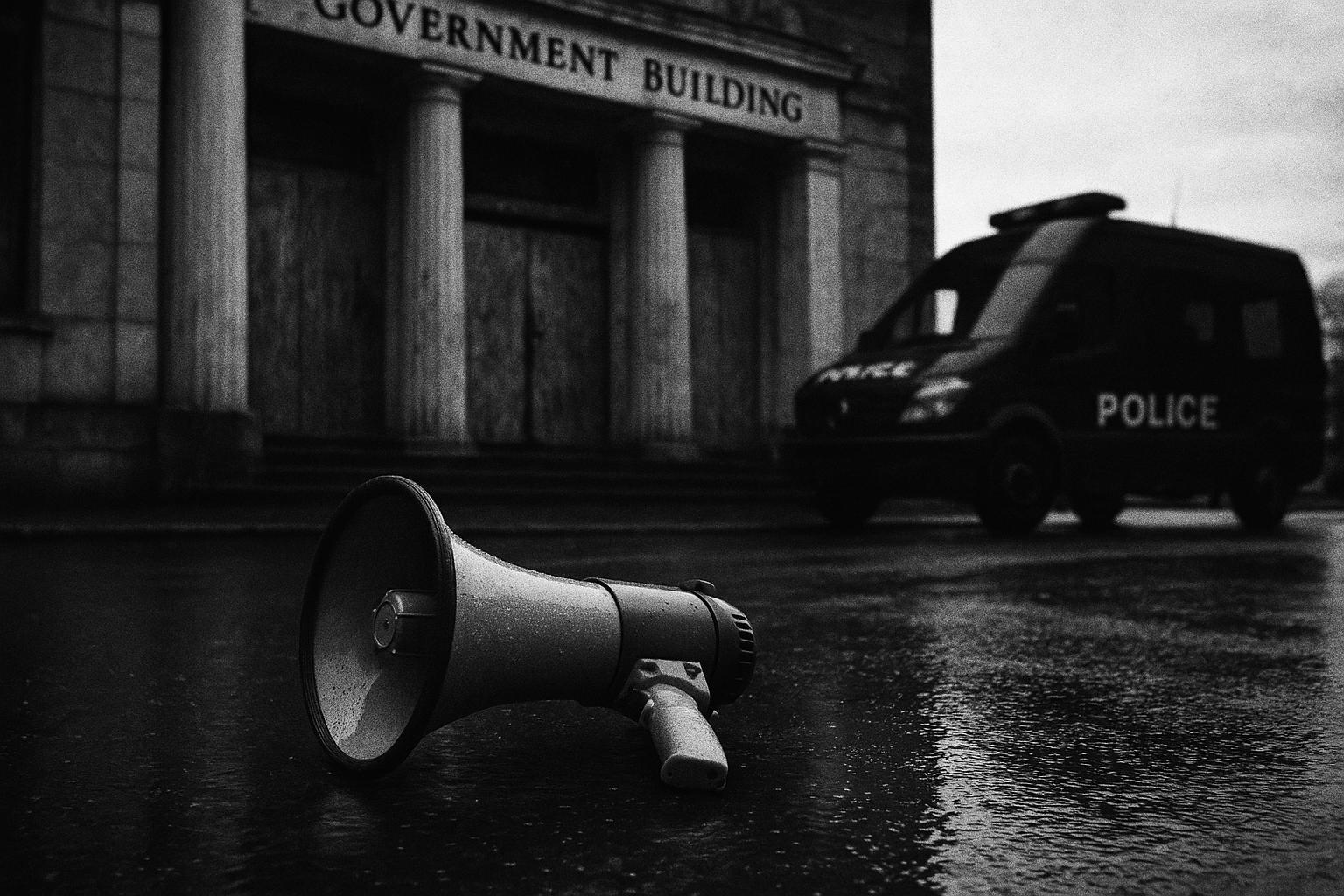Britain’s equality watchdog has warned that an assertive policing response to Gaza‑related demonstrations risks chilling free speech and undermining public confidence in human‑rights protections. In a letter to Home Secretary Yvette Cooper and Metropolitan Police Commissioner Sir Mark Rowley, Equality and Human Rights Commission chair Baroness Kishwer Falkner reminded ministers that “the right to protest is a cornerstone of any healthy democracy” and urged that any interference with protest rights “must be lawful and assessed case‑by‑case”. The commission warned that “heavy‑handed policing or blanket approaches risk creating a chilling effect, deterring citizens from exercising their fundamental rights to freedom of expression and assembly through fear of possible consequences.” (EHRC letter)
The warning follows reports of policing that civil‑liberties campaigners say has gone beyond actions aimed at a proscribed group. Media accounts describe an incident in Canterbury in July in which a woman holding a Palestinian flag and placards was allegedly threatened with arrest under the Terrorism Act after officers suggested her display expressed support for Palestine Action; the woman has instructed solicitors and a legal letter of claim has been sent to Kent Police. Local reporting recorded community unease after armed officers attended the scene, and Kent Police confirmed it had received correspondence from a legal firm representing the individual. Critics say such encounters illustrate the very case‑by‑case concerns the EHRC highlighted.
The controversy must be seen alongside the government’s recent decision to proscribe Palestine Action. The Home Office published a draft proscription order in early July as part of a parliamentary process to outlaw groups judged to pose a threat to public safety and national security; if enforced, membership of or support for a proscribed organisation can carry penalties of up to 14 years’ imprisonment under the Terrorism Act 2000. The government said its security assessments and evidence justified the measure and that proscription is applied irrespective of ideology where risks are identified.
Downing Street has described Palestine Action as “violent”, saying the group has caused “significant injury” and criminal damage and that the closed‑court evidence used to inform the decision supported proscription. Palestine Action has strongly rejected those claims, calling the government’s accusations “false and defamatory” and asserting that its own account is “disproven by the Government’s own intelligence assessment”, a rebuttal reported by the group and the media. Legal challenges to the proscription are already under way, and the dispute has sharpened debate over whether the designation and its enforcement will curtail legitimate protest.
The policing response in central London over recent weeks has been large in scale. Metropolitan Police figures released during demonstrations showed initial detention figures in the hundreds that were later updated to more than 500 arrests at one weekend, with police saying most were for displaying items deemed to support a proscribed organisation. Operational briefings cited by broadcasters and news outlets noted significant strain on resources, an operational bill running into millions of pounds, and demographic details suggesting many detainees were older adults. Crown Prosecution Service and Director of Public Prosecutions statements indicate prosecutions are being pursued in a number of cases; Stephen Parkinson, the Director of Public Prosecutions, said in a public statement that while the right to protest is protected, “when protest conduct crosses the line from lawful activity into criminality, we have a duty to enforce the law,” and warned of the long‑term consequences of terrorism convictions.
Policing agencies say they are acting on remit and intelligence. Counter Terrorism Policing has set out that it is supporting local forces to investigate suspected offences under the Terrorism Act, that some cases have progressed to charges, and that their stated aim is to enforce the law professionally while distinguishing between criminal activity linked to a proscribed group and legitimate pro‑Palestine protest. The Metropolitan Police declined to comment beyond operational updates; the Home Office has pointed to the Home Secretary’s recent remarks that the right to protest is fiercely protected but that there is a difference between lawful protest and showing support for a proscribed organisation.
The EHRC has urged government and police to ensure all officers receive clear and consistent guidance on human‑rights obligations when policing protests, and to apply any restrictions only after lawful, individual assessment. Legal claims and ongoing challenges to the proscription mean the issue is likely to return to courts and to political debate: the immediate question for ministers and police is how to reconcile the stated aim of public safety with the commission’s admonition that measures should not, by design or perception, deter lawful dissent and damage the broader health of democracy.
📌 Reference Map:
##Reference Map:
- Paragraph 1 – [1], [2]
- Paragraph 2 – [2], [7], [1]
- Paragraph 3 – [3], [1]
- Paragraph 4 – [1], [6], [3]
- Paragraph 5 – [4], [1], [6]
- Paragraph 6 – [5], [1]
- Paragraph 7 – [2], [5], [6]
Source: Noah Wire Services
